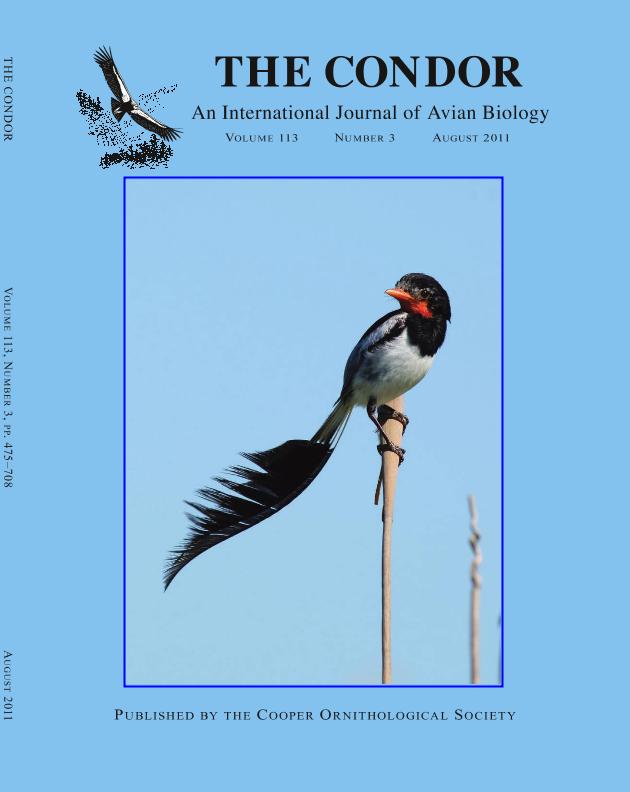Artículo
Male and female reproductive success in a threatened Polygynous species: the Strange-tailed Tyrant, Alectrurus risora
Fecha de publicación:
08/2011
Editorial:
Cooper Ornithological Society
Revista:
The Condor
ISSN:
0010-5422
Idioma:
Inglés
Tipo de recurso:
Artículo publicado
Clasificación temática:
Resumen
The Strange-tailed Tyrant (Alectrurus risora) is an endangered obligate grassland bird that inhabits savannas, wet grasslands and marshes in southern Paraguay and northeastern Argentina. We evaluated the extent of social polygyny, main measures of reproduction (clutch size, hatching success, and chick survival), and factors that influence nest success in this species. We also estimated the reproductive success of females and males by measuring the number and fate of nesting attempts by banded females and the number of females per a male's territory. More than 80% of the males were polygynous. Males defended contiguous territories of 2-2.5 ha that included the territories of up to four females. Females built the nest, incubated the eggs, and brooded and fed the chicks. On average, successful nests fledged 2.3 chicks. Nest survival over the entire cycle was 0.23 and decreased with nest age and time of breeding. Most females made two or three nesting attempts per breeding season and bred in the same area for 2 or 3 consecutive years. In contrast, males rarely were seen in the same area more than 1 year, suggesting sexual differences in mortality. As a result of this, the reproductive succcess of females and males was similar. Our findings indicate that although males are highly polygynous and nest success is low, the high turnover of males in successive breeding seasons and the high probability of females' renesting within and in successive breeding seasons reduce the variance in reproductive success of both sexes.
Archivos asociados
Licencia
Identificadores
Colecciones
Articulos(IEGEBA)
Articulos de INSTITUTO DE ECOLOGIA, GENETICA Y EVOLUCION DE BS. AS
Articulos de INSTITUTO DE ECOLOGIA, GENETICA Y EVOLUCION DE BS. AS
Articulos(OCA CIUDAD UNIVERSITARIA)
Articulos de OFICINA DE COORDINACION ADMINISTRATIVA CIUDAD UNIVERSITARIA
Articulos de OFICINA DE COORDINACION ADMINISTRATIVA CIUDAD UNIVERSITARIA
Citación
Di Giacomo, Adrian Santiago; Di Giacomo, Alejandro G.; Reboreda, Juan Carlos; Male and female reproductive success in a threatened Polygynous species: the Strange-tailed Tyrant, Alectrurus risora; Cooper Ornithological Society; The Condor; 113; 3; 8-2011; 619-628
Compartir
Altmétricas




